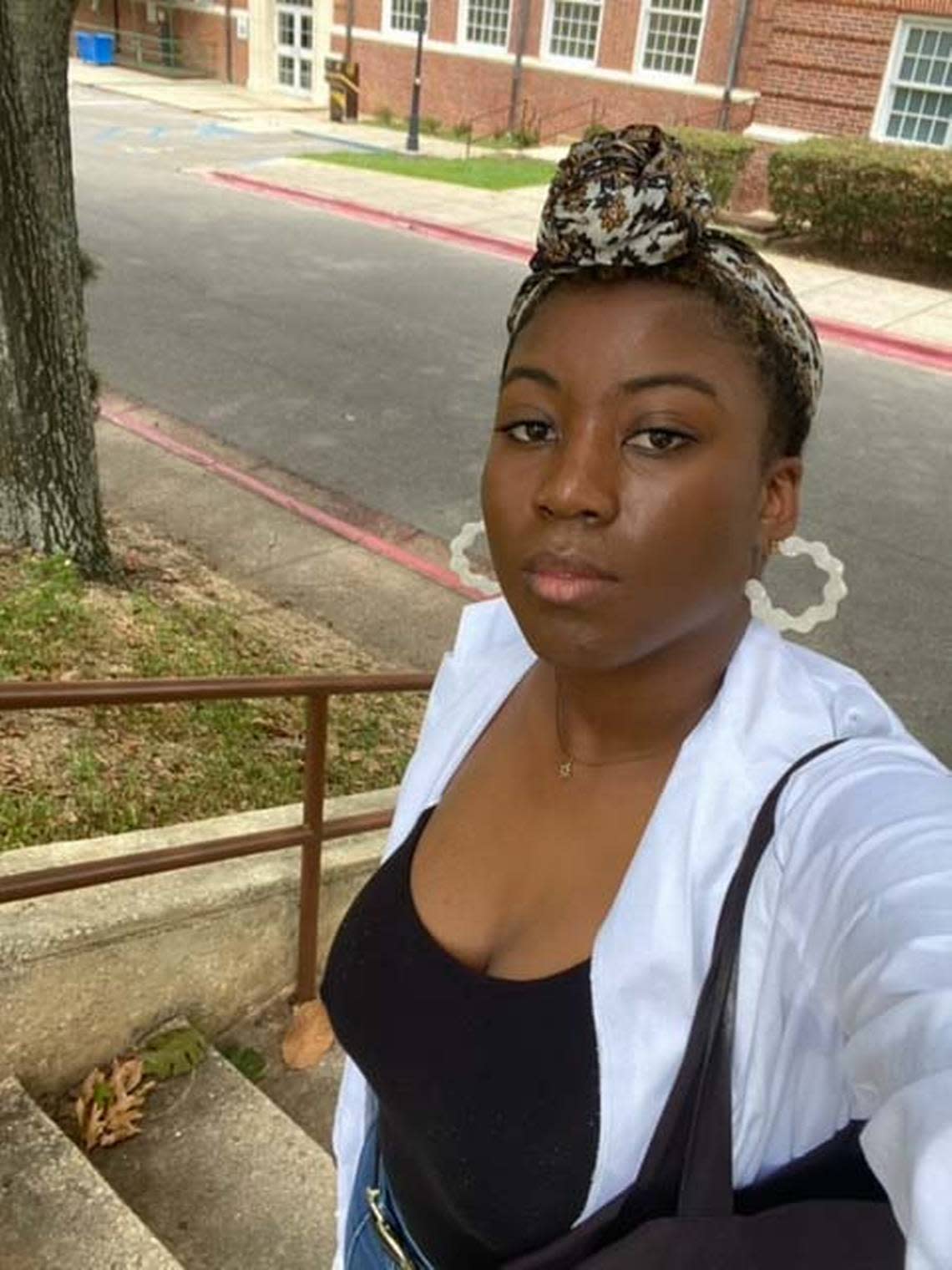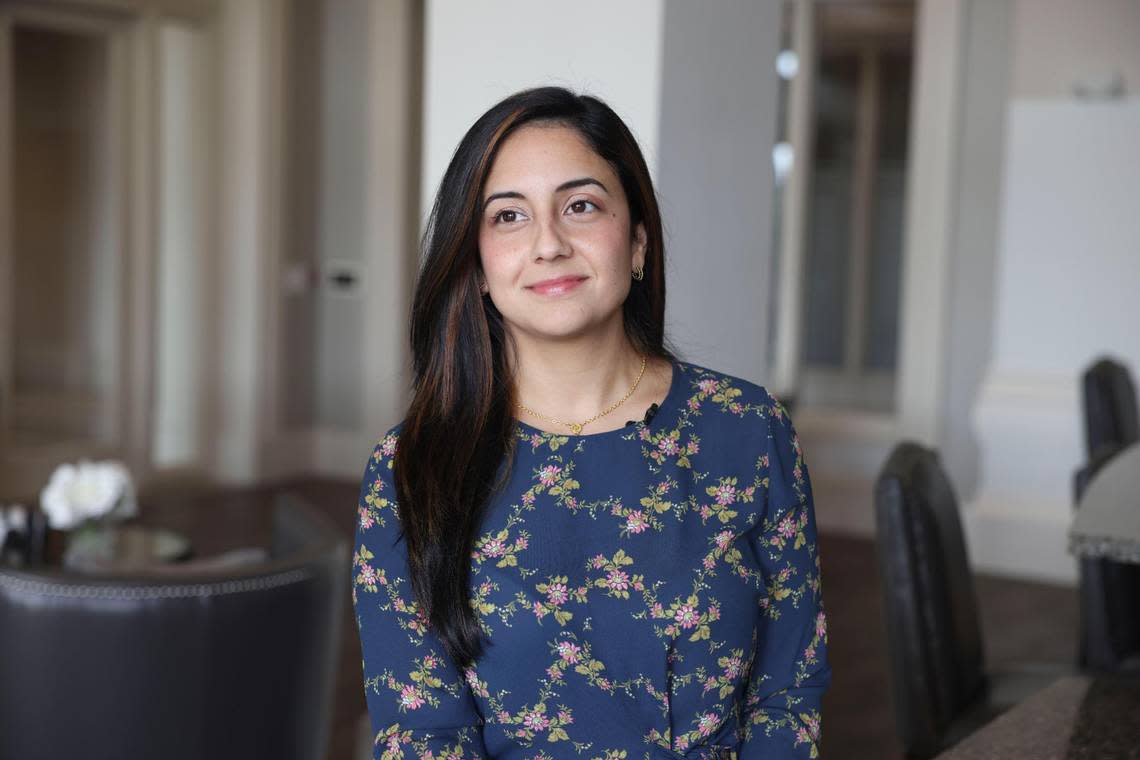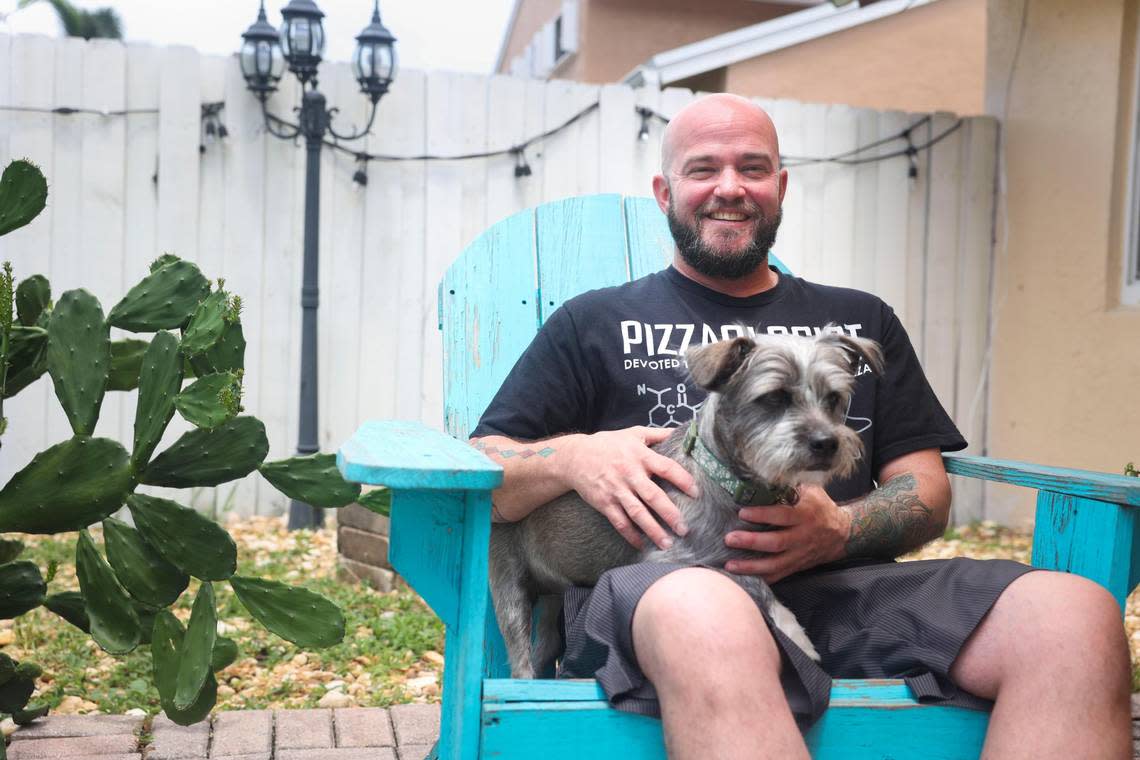Zero regrets, deep regrets. How an abortion decision shaped the lives of three Floridians
Who is the typical abortion patient? They don’t fit any neat profile — not in Florida and not around the country. They come from all walks of life. Their reasons vary. Nearly half have the procedure in the first six weeks of pregnancy and more than 90 percent in the first 13 weeks.
What they might have in common, according to Guttmacher Institute, a research and policy organization that studies sexual and reproductive health and supports abortion rights, and U.S. Centers for Disease Control and Prevention data, is that most women are in their 20s, are already mothers, are single or living with a partner, have a low income, have attended some college and have not had a previous abortion. In the U.S., the abortion rate is about half what it was 30 years ago — mostly due to more effective use of contraceptives and fewer teenagers having sex and getting pregnant. Still, about 25 percent of American women will have an abortion during their childbearing years, according to the Guttmacher Institute’s demographic research.
Here are the stories of three Floridians who had abortions and their views on the U.S. Supreme Court’s ruling to overturn Roe v. Wade and allowing states to restrict or remove women’s rights to an abortion. Two have no regrets; one does. But the common thread is how the decision shaped their lives in the years afterward.
‘I have zero regrets’
Trenece Robertson, 22, is a student majoring in sociology at Florida A&M University in Tallahassee. She grew up in a large family, raised by her mother and grandmother in a small, rural, poor town in Louisiana.
Three years ago, after missing her period for six weeks, she and her partner found out she was pregnant. She took multiple tests, hoping they were false positives.
“I knew immediately that I would get an abortion,” Robertson said. “I did not want to have a baby at that age because it would not be fair to me or the child. I’m a broke student working my way through college. I understood the stigma of being a pregnant young Black woman. I saw how my mom struggled.”

Robertson knew of only two abortion clinics in Louisiana that were open, both far from her home. Both adhered to the state’s “24-hour rule,” which requires women seeking an abortion to come in for a pregnancy test and ultrasound, then wait 24 hours for the procedure — which she said not only complicates the process for patients who need transportation, lodging and time off from work but can also delay the process since many clinics do not have appointments available the next day.
“It’s actually a tactic to make you feel guilty and to make a reproductive health procedure as difficult as possible,” she said.
Robertson instead had the abortion at a Planned Parenthood clinic in Tallahassee.
“I cried the night before thinking I would be traumatized. Abortion is depicted on TV and in movies and by the anti-abortion movement as something dramatic, something that breaks people,” she said. “But the doctor and staff were very kind and assured me I’d be fine. I blinked and they said, ‘We’re done.’
“I came to terms with my decision and I have zero regrets.”
Louisiana enacted a near total ban on abortions after Roe v. Wade was overturned.
“And they are trying to ban contraceptives. It’s terrifying. None of our rights will be safe,” she said. “I saw it coming the moment [Donald] Trump got into office. I am concerned for people who are low income and will find it 10 times harder to get access.”
Robertson is hopeful her generation will add powerful voices to campaigns to restore abortion rights.
“Abortion is not discussed enough in mainstream conversation, in sex education in schools,” she said. “It is sensationalized, demonized, made to be a shameful thing. It’s important to talk about people like me. I don’t want anybody to say, ‘You poor thing.’ It’s a personal choice about your body, your health, your future. It ain’t nobody’s business but your own.”
Afterward, seeking forgiveness from the church
Linda Fernandez, 31, grew up in Kendall and lives in Doral. She has a Ph.D. in physical therapy. But she has put aside her career as a therapist to be Southeast Program Director for Sidewalk Advocates For Life, an anti-abortion organization whose members engage with women outside abortion clinics, talking to them about alternatives and aid in the hope they will not terminate their pregnancy. Their goal is to end abortion, and the website runs a tally on the number of babies saved: 17,883 as of Friday.
“I thought I was going to heal people physically,” Fernandez said. “Now I do a different kind of healing. We give women life-affirming information. We give them hope and love when they are afraid and angry. When they choose to turn around and leave and save their child, we rejoice with them.”
Fernandez had an abortion at age 24 when she was seven weeks pregnant. It was a decision that changed the trajectory of her life.
“My abortion led to a greater purpose for me,” she said.
At the time, she described herself as rebellious and insecure. And pro-choice.

“There was a void I was always trying to fill with men as my source of safety and security,” she said. “I was promiscuous, drinking a lot. I could party with my friends and feel numb. I wasn’t taking care of myself or my dignity. I went out one night with a guy and then one morning I woke up nauseous. My friends said I was pregnant but it was OK, they knew a trustworthy facility where I could get rid of the problem.
“I took four pregnancy tests because I didn’t want to believe it. I was scared, I couldn’t tell my parents. I asked the father to pay for it.”
Fernandez had a medical abortion, which required taking a sequence of pills.
“At the clinic I wanted to see the ultrasound but they said, ‘It’s nothing, you’re only seven weeks.’ That was a cold moment,” she recalled. “They gave me the pills and told me it would be like a regular period but while driving to class at FIU I felt excruciating pain. I was bleeding a lot. I vomited in my car. I started praying, thinking I did something horrible and I’m going to die.”
When she returned home, her mother saw the blood and helped her into bed.
“She was very comforting,” Fernandez said. “I told her I was ashamed and hurting. She encouraged me to go to church and seek forgiveness.”
Fernandez gave her confession to a priest, who handed her pamphlets for Project Rachel, a post-abortion ministry of the Catholic Church, which classifies abortion as a grave sin but not an unforgivable sin.
“It was a beautiful encounter, being forgiven and forgiving yourself,” she said. She sought counseling through the Miami archdiocese and attended a Rachel’s Vineyard retreat. “The first step in the healing journey is recognizing that you had a child, that he was not a blob of cells. I named him Joshua.
“People who have had abortions are deeply wounded. Nobody wants to talk about pain and death and grief. But once you face it and process it, you find freedom.”
Fernandez began volunteering on a crisis phone line. During graduate school in Utah, she joined Sidewalk Advocates For Life. Today, she and her team members do outreach at two dozen abortion clinics in Miami-Dade County.
“Here we hear a lot of women say they’re afraid they’ll lose their Miami figure and Hispanic women who want to normalize abortion, and I tell them they are beautiful and their body is meant to nurture a child,” she said. “We don’t judge, we don’t pressure. We call it the love approach.
“Every time a woman has chosen life, she has overturned Roe v. Wade.”
‘I was a teenager doing lots of crazy things’
Jameson O’Hanlon, 54, is a pizza chef and former teacher who lives in Davie with his wife, Jules, a paralegal, and daughter Drew, 19, who is training to become a flight attendant.
O’Hanlon, a transgender man, had an abortion at age 17 when he still identified as female. If he had given birth to a child, the course of his life would have been altered and he probably never would have transitioned, he said.
“I had sex with a guy who told me he was sterile. I was a teenager doing lots of crazy things,” O’Hanlon said. “I didn’t even like men, romantically-speaking. I had no business fooling around. I took a pregnancy test and oh, no. It’s not that I never wanted a child. But not at that time and not in that body. I knew immediately what I wanted to do and that was to get an abortion. I went to a Planned Parenthood clinic, where I was not harassed or judged. I have never regretted my decision.”

From a young age, O’Hanlon knew he was male.
“I always knew who I was from the time I could think thoughts,” he said. “I now look like I always pictured myself. When I was a kid, people would say, ‘What a pretty little girl,’ and I’d say, ‘I’m not a girl, I’m a boy.’
“But in order to come to terms with living in this body, I thought I needed to be female. Screw your mind around and try to be happy and comfortable in this body.
“My true self was buried until I transitioned. That’s when I came out a second time.”
First, O’Hanlon came out as a gay woman. He and Jules got together in 2000. Jules, with assistance from a sperm donor, gave birth to Drew in 2003. O’Hanlon and Jules were married in 2013 at San Francisco’s Pride event and O’Hanlon later decided to transition.
He received his first testosterone shot in 2016
“I am a guy now but I was gay then,” he said. “We are afraid of what’s coming next from the Supreme Court. They will probably nullify all gay marriages, ban any union not between a man and a woman.”
“When I started my transition I felt excited and supported. Then [Donald] Trump got elected. Things have gotten scary since. Insurance companies stopped covering trans surgeries. States are prohibiting young people from taking hormones. Trans people have become the punching bag in the hate wars.”
Since the Roe v. Wade decision was leaked in May, O’Hanlon has been participating in abortion rights demonstrations. He believes outlawing abortion will only endanger women’s health.
“Abortion affects women, men, trans people, non-binary people — anyone with genitalia,” he said. “If you control women’s autonomy, men assume the place at the top of the hierarchy without competition. But you can’t dehumanize people. Women are not vessels. They deserve every opportunity a man has.”
O’Hanlon, who considers himself a feminist, is worried that his daughter will have fewer rights than her parents had.
“Conservatives knew that abortion is an issue that galvanizes the religious right so they began plotting a ban years ago,” he said. “This is exactly where they wanted to go and they’ve got more goals on their agenda.”
